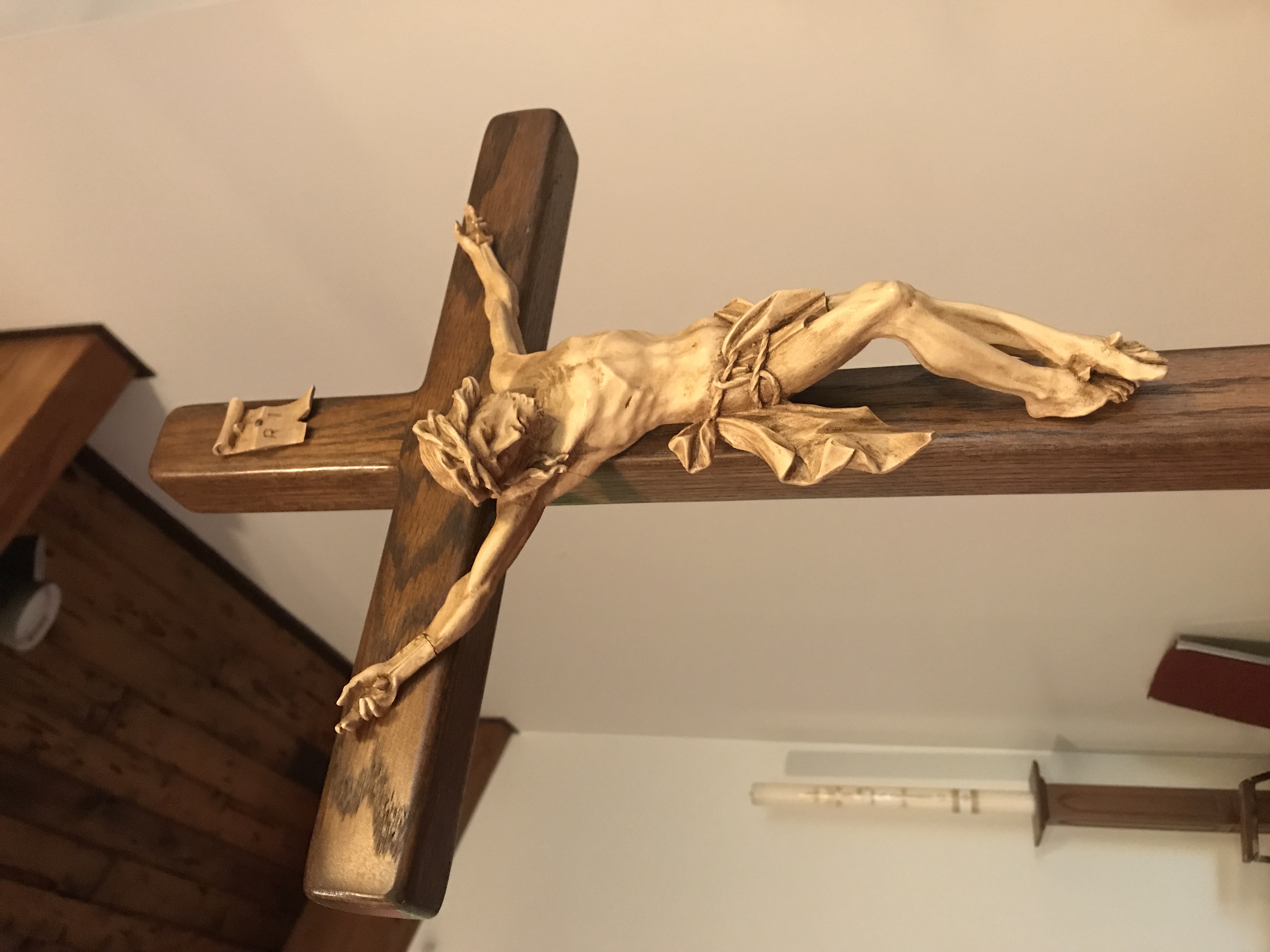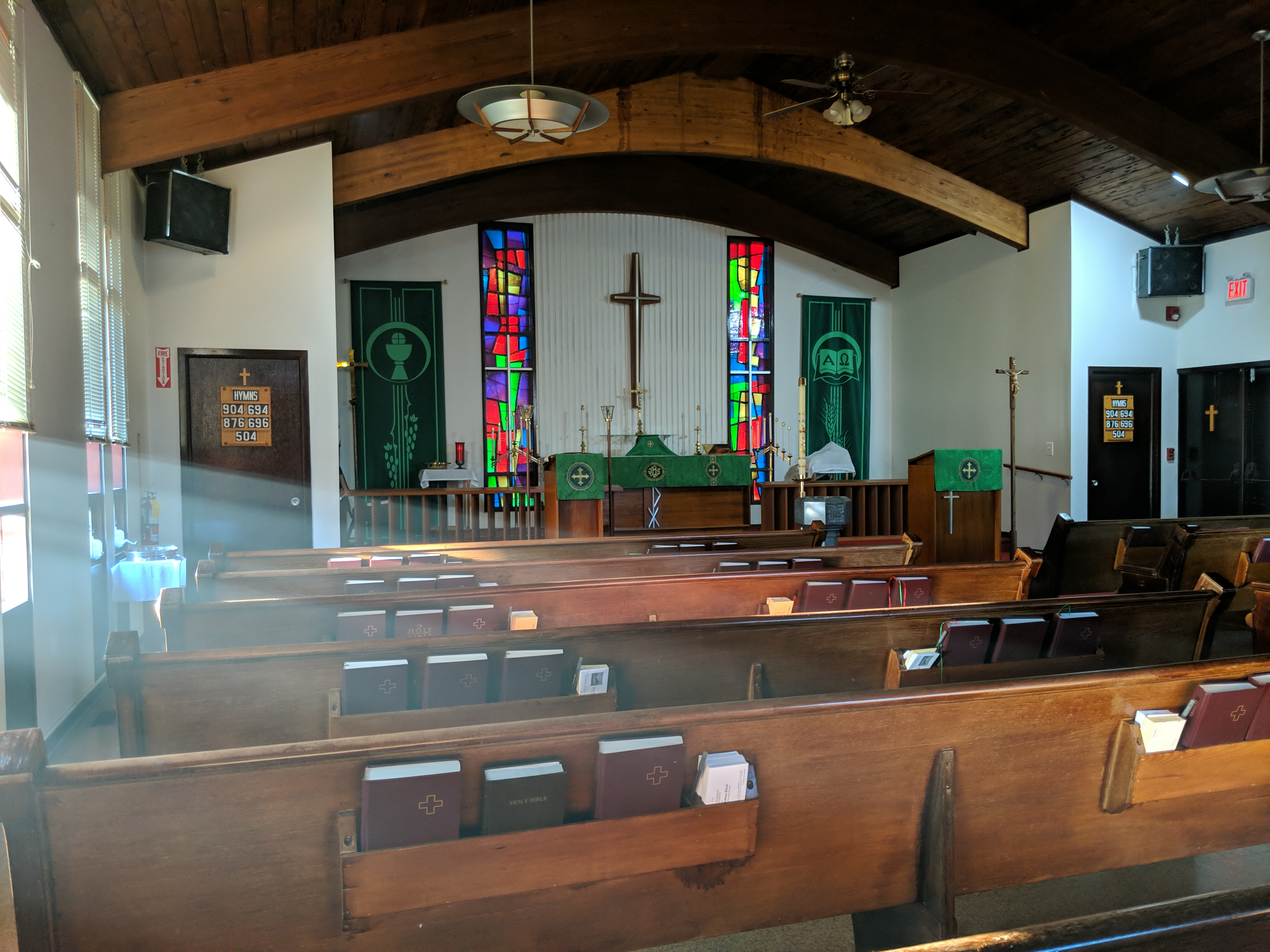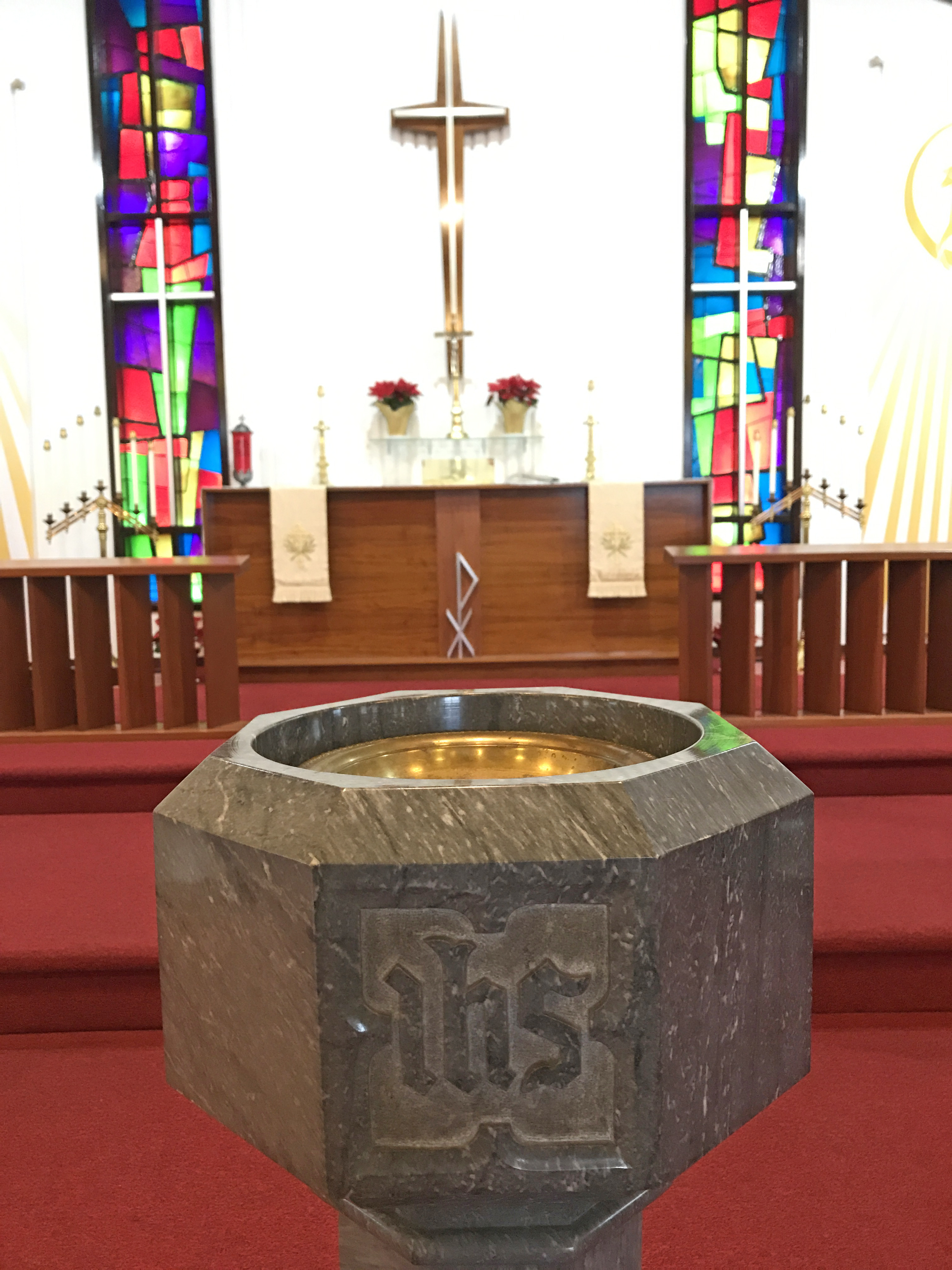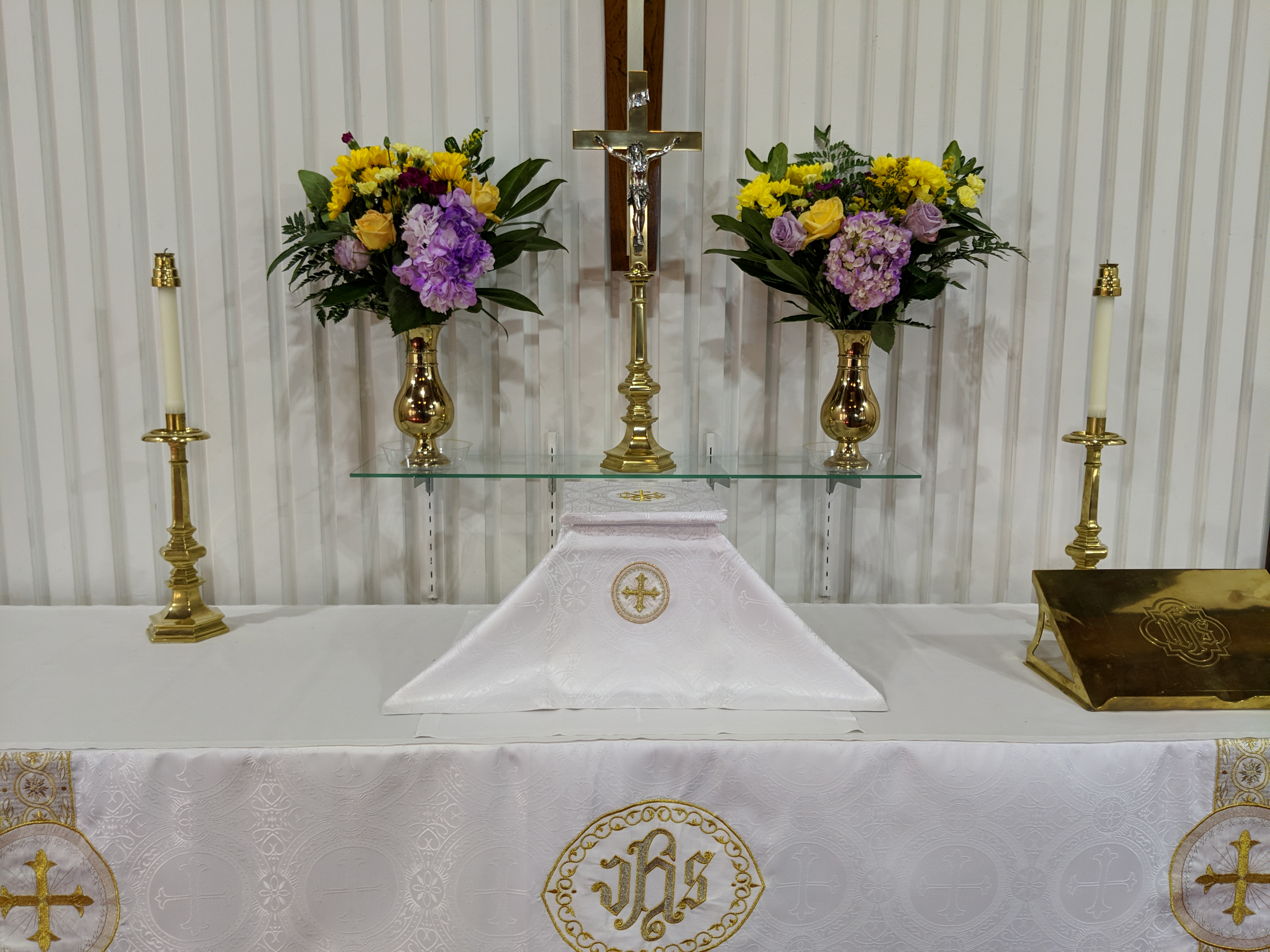The First Sunday after Trinity – Sunday 2 June A✠D 2024
✠ Psalmody: Psalm 13:5-6;1-4;41:4, 1;7:1
✠ Lection: Deuteronomy 6:4–13; 1 John 4:8b–21; St. Luke 16:19–31
In the Name of the Father and of the ✠ Son and of the Holy Spirit. Amen.
We love the here and now so much that the truth about heaven and hell don’t typically come to mind until death comes near to us; either in our own near pass to it or when a loved one’s death startles us to the impending reality that none of us live in this place forever. In those times, for passing moments at least, what lies beyond this life gets considered and we begin to realize that we are all dying; some of us closer to a natural end than others; some of us with abrupt, sudden deaths lying ahead. It refreshes the importance of the here and now, for what happens here affects our forever. Jesus teaches us the reality of what awaits us all and what that truth does to our hearts, our beliefs, our thoughts, words, and actions here. Just as there will be a separation of the sheep from the goats on the Last Day, as all will be delivered either unto everlasting punishment or everlasting reward, so there is a difference in how the sheep act now. That reality isn’t one that is only to be dealt with when we close our eyes for the last time in this life, but it is a reality that has effects upon us daily, not only within, but also in how we treat one another.
Heaven and hell are real. This is no insignificant truth, for this brief breath of life quickly ends, while what is to come shall be end-less. The life, or death, of that which is to come is eternal, beyond compare to these fleeting times that tempt us to treasure them more than what is everlasting. Unlike the ability to freely move from place to place here upon the earth, the separation between heaven and hell will be a permanent chasm that cannot be breached in either direction. It is as Abraham said to the rich man, “between us and you there is a great gulf fixed, so that those who want to pass from here to you cannot, nor can those from there pass to us.” Such is bad news for those in hell, for it means that there will be no relief for all eternity from the just torment to be poured out upon all who dwell there. The fixed, great gulf is good news for those in heaven, for it means that the joy possessed dwelling in the bliss of the Lord will never decrease either.
Glimpsing the brief accounts of these two lives, the rich man and Lazarus, that ended up one in hell and one in heaven tells us little, but tells us enough. We don’t have their full life histories. We know not how they lived as children, how their parents raised them, what hard times they encountered along the separate paths that converged at the gate of the rich man. That man ultimately ended up in eternal torments even while having everything here that this life teaches that one could desire; money, food, fine clothing, leisure, mirth, worldly security. While he appeared rich, he was truly extremely poor, for if everything can be taken away from us at our death, which it all is, then how much of all that we have is truly ours anyway? It was God who allowed the rich man to have such things, entrusting to him good use of them. Yet, the Lord reveals how that went. He didn’t end up in hell simply because he was rich. He was cast into unquenchable flames of torments in Hades because he was poor in the things of God, namely in love for his brother that would’ve been founded on faith in the loving God.
Likewise, Lazarus wasn’t ushered by angels to Abraham’s bosom simply because he was poor in this life. There will be plenty of both rich and poor in hell for all eternity, but by implication in the Gospel text, the poor beggar possessed the one thing that shows all the wealth of this age to be but paltry lures that fade away and entice people to follow to the same end. Lazarus had faith, yes, seeking out crumbs from the rich man’s table, but more so, confident in the sufficiency for life of the crumbs that fall from his Master’s table, Manna from above that feeds soul and body in the one true faith unto all eternity. Lazarus trusted that God’s mercy is eternal and unfailing, even when fellow man’s is neither.
Both of these men died and their bodies were returned to the ground to await the resurrection. Their souls were sent to await that day, but with judgment already pronounced as to who was truly rich, who was truly poor. The Lord Jesus recounts no egregious act that the rich man committed against Lazarus upon which the weak-in-stomach would be loath to look upon or hear of. We are not told that he struck the beggar with the palm of his hand as he demanded that he depart from his gate. We are not told that he had his servants scourge him and cast him outside the city. Yet we are told that what is absent in hearts that do such things was also lacking in that of the rich man. Lazarus was laid at his gate, a clear sign that it was known that the wealth and ability of the rich man could be that of great help to this person in need; help toward a poor beggar, full of sores, starving but for crumbs which fell from the rich man’s table. But the rich man simply didn’t care. He just lived his life of self-satisfied bounty. Call it apathy. Call it indifference. Call it an overwhelming sense self above all others. In his heart, he lacked godly compassion that would’ve been taught to it when such dead hearts are made alive by receiving the unwarranted favor from above. That’s the difference. Clearly, he had much, yet lacked even more. That is what is indicated by there being such an extreme void of help in the face of Lazarus’ extreme case of need. Those who realize they have been given much value giving much.
This most certainly includes monetary wealth entrusted to us, but we are so much more than our possessions. Our most valuable commodity is time, for we are all given the same amount and are able to make good, productive use of it. The rich man had more than enough possessions to give where God had placed a need right outside his door, but the worst thing he didn’t give to Lazarus was the time to care about him. In essence, the rich man failed to love God, because he failed to love his neighbor; both hallmarks of what it means to have first received love from God.
It is those who see what has been given to them by faith who are then driven by that love of God that has been shown to in turn them to love Him and to love one another; to love not in order to warrant or earn the gift of God’s love, but to live in the understanding and trust of what it means for others into whose lives God places us. We love God because He first loved us. We love our brother also because God first loved us, for God shows us how to love. It is no generic, well-wishing, good-intentions worldly love that is rooted in the mantra that we should just be kind, though not a bad idea among the sea of sewage in which we swim. Greater love hath no man than this, that a man lay down his life for his friends. This true love is revealed in Christ’s suffering and death. God is love. In this the love of God was manifested toward us, that God has sent His only begotten Son into the world, that we might live through Him. In this is love, not that we loved God, but that He loved us and sent His Son to be the propitiation for our sins. Beloved, if God so loved us, we also ought to love one another.
Christ was the propitiation for our sins, meaning that in Him, God’s just anger toward our sins was set aside. It was set aside from its rightful place upon us all and placed entirely upon the Son as He was roasted in the fire of God’s wrath upon the cross. He is the true Love out of which all pure love flows, both in response to God Himself and in how we treat one another.
Brothers and sisters in Christ, those sitting around you here are the ones with whom you will spend eternity. If that causes you to groan, repent, for this is the family of God, made by God. The personality differences, the intricacies about one another that we don’t like, and we all have oddities and weirdness, if they are not sins, then they most certainly give us no ground to disregard, much less disdain, avoid, slander, mistreat, or speak unkindly to or about one other. We are not, by our words or actions, to treat others as the rich man treated Lazarus; as if certain other people aren’t there, as if they don’t exist, as if they are not important enough to enter into the minutes of our personal domains. It cannot be so among those of the household of faith. This does not mean that we all must be bosom buddies in this life, but we are to care for one another, to not only be kind, but to keep a watch out for one another, especially when we see one of us in need. It may be financial that is needed, but more often than that, what is needed to be given is something that’s worth so much more in this life than money or possessions. The simple gift of time as we show interest and care for one another’s burdens, struggles, joys, sorrows is a way for the love of God that we have received in the gift of His Son to come through us to those He has given us to love. For those who have received such love by faith here, receive the eternal gift of heaven and life in the world to come as opposed to death and torment. That love will be lived out perfectly in what is to come, for there will be no sin to hinder us from truly loving one another the way that Christ loves us. Until then, we shall stand and fight nobly for what is good by loving one another the way that God has taught, the way that God has shown that He is love.
In ✠ Jesus’ Name. Amen.















Comments are closed, but trackbacks and pingbacks are open.